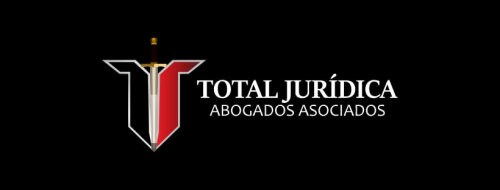Best Domestic Violence Lawyers in Bogota
Share your needs with us, get contacted by law firms.
Free. Takes 2 min.
Free Guide to Hiring a Family Lawyer
List of the best lawyers in Bogota, Colombia
About Domestic Violence Law in Bogota, Colombia
Domestic violence, known in Colombia as “violencia intrafamiliar,” is recognized as a serious social and legal issue across the country, including in Bogota. The Colombian legal system has introduced specific protections for victims of domestic violence, recognizing it as not only a private family matter, but a criminal offense that affects public health and safety. Domestic violence can take many forms, including physical, psychological, sexual, economic, or patrimonial abuse within family settings, including between spouses, romantic partners, parents and children, or other cohabitants.
Why You May Need a Lawyer
There are several situations where it is important to seek legal help in domestic violence cases in Bogota, Colombia. A lawyer can assist victims in obtaining emergency protection measures, reporting abuse to the authorities, and pursuing criminal charges against the aggressor. Legal professionals also guide clients through divorce or child custody proceedings impacted by domestic violence. In some cases, those accused of domestic violence may require legal representation to ensure their rights are protected during investigations or court hearings. Navigating the legal system can be complex and emotionally taxing, so seeking the help of a qualified lawyer can provide clarity, security, and support.
Local Laws Overview
Domestic violence in Bogota is primarily addressed under Law 294 of 1996, Law 575 of 2000, and Law 1257 of 2008. These laws define and protect against violence within the family, detailing both preventive and punitive measures. Key features include:
- Comprehensive Protection: Both men and women, as well as children, elderly, and vulnerable family members, are protected. - Immediate Protective Measures: Police, prosecutors, or judges can order immediate protection for victims, such as removal of the aggressor from the shared home or restriction orders. - Criminal and Civil Proceedings: Domestic violence is a prosecutable crime, and victims can also seek civil remedies, such as compensation or divorce. - Specialized Support: The law provides for multidisciplinary teams to assist victims, including psychological, medical, and legal support. - Duty to Report: Neighbors, teachers, or medical professionals are legally obligated to report suspected domestic violence.
Frequently Asked Questions
What acts are considered domestic violence in Colombia?
Domestic violence includes physical, psychological, sexual, or economic abuse carried out by a family member or partner, either within or outside a shared home.
How do I report a case of domestic violence in Bogota?
You can report domestic violence at any police station (CAI or URI), to the Fiscalía General de la Nación, at the Family Welfare Office (ICBF), or through women's and family protection hotlines.
What immediate protection can I request as a victim?
Victims can request protection orders, including removal of the aggressor, prohibition of contact, and even temporary custody arrangements for children.
Is domestic violence a criminal offense in Colombia?
Yes. Domestic violence is classified as a criminal office, and offenders can face imprisonment depending on the severity of the harm caused.
Can I request a restraining order?
Yes. Courts and prosecutors can issue restraining orders to keep the aggressor away from the victim’s home, workplace, or school.
What should I do if I fear for my immediate safety?
Seek help from the nearest police station, call emergency services, and request urgent protective measures. Safe shelters and psychological support are also available.
Can men be victims of domestic violence?
Yes. The law protects both male and female victims, including children, the elderly, and any other family members.
What happens if the aggressor violates a protection order?
Violating a protection order is a crime and can lead to arrest and additional criminal penalties for the aggressor.
Can domestic violence affect child custody proceedings?
Yes. A history or risk of domestic violence is taken into account by courts when deciding custody, with the primary focus on protecting the child’s best interests.
Is legal aid available for victims who cannot afford a lawyer?
Yes. Public Defender’s Offices, family police stations, and organizations supporting victims can provide legal advice for those who cannot afford private counsel.
Additional Resources
Several resources and organizations in Bogota provide crucial support and guidance for those affected by domestic violence:
- Fiscalía General de la Nación: Handles legal complaints and investigations into domestic violence. - Instituto Colombiano de Bienestar Familiar (ICBF): Offers protection and support for children and families. - Comisarías de Familia: Family Welfare Offices where victims can request protection orders and other services. - Defensoría del Pueblo: Provides legal advice and protection for human rights. - Secretaría Distrital de la Mujer: Offers psychological, legal, and social assistance for women victims of violence. - National Hotline for Gender Violence: Free and confidential counseling 24 hours a day. - Local NGOs: Organizations such as Casa de la Mujer or Sisma Mujer provide legal orientation and support groups.
Next Steps
If you or someone you know is experiencing domestic violence in Bogota, it is important to act promptly:
- Ensure immediate safety. Seek a safe place or contact emergency services if in immediate danger. - Report the abuse to the police or the Family Welfare Office. - Request protective measures or a restraining order if needed. - Gather evidence of abuse, such as photos, medical reports, or witness statements. - Seek legal advice from a qualified lawyer or a public defender. - Access psychosocial support services for emotional and psychological help. - Be informed about your rights and the available legal processes. Remember, you are not alone, and there are organizations and professionals ready to help you. Acting quickly and seeking legal guidance can be crucial in stopping abuse and protecting yourself and your loved ones.
Lawzana helps you find the best lawyers and law firms in Bogota through a curated and pre-screened list of qualified legal professionals. Our platform offers rankings and detailed profiles of attorneys and law firms, allowing you to compare based on practice areas, including Domestic Violence, experience, and client feedback.
Each profile includes a description of the firm's areas of practice, client reviews, team members and partners, year of establishment, spoken languages, office locations, contact information, social media presence, and any published articles or resources. Most firms on our platform speak English and are experienced in both local and international legal matters.
Get a quote from top-rated law firms in Bogota, Colombia — quickly, securely, and without unnecessary hassle.
Disclaimer:
The information provided on this page is for general informational purposes only and does not constitute legal advice. While we strive to ensure the accuracy and relevance of the content, legal information may change over time, and interpretations of the law can vary. You should always consult with a qualified legal professional for advice specific to your situation.
We disclaim all liability for actions taken or not taken based on the content of this page. If you believe any information is incorrect or outdated, please contact us, and we will review and update it where appropriate.














